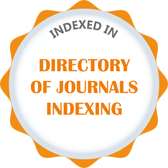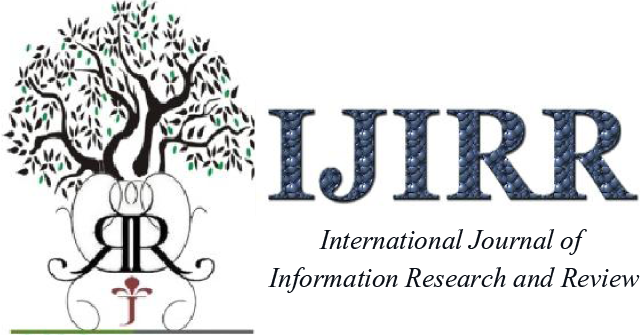Opinion Article
Volume 2 Issue 5 - 2019
Scientific Research, Science, Ethics, and Their Relations
Department of Educational Sciences, Science and Research Branch, Deakin University, Australia
*Corresponding Author: Ezatolah Naderi, Department of Educational Sciences, Science and Research Branch, Deakin University, Australia.
Received: January 07, 2019; Published: January 11, 2019
Summary
In this mini-review article, the three concepts of “scientific research”, “science”, and “ethics”, as well as the relation among them are briefly explained.
Introduction
Firstly, concerning doubts and ambiguities around these three terms and their relations in the literature, a few remarks are worthwhile:
- Scientific method, as the sole solution at a scientist’s disposal to approach problems in her/his area of expertise, enjoys universal clear-cut rules. Not only do these rules are in harmony with human’s nature and wisdom3, but are borderless principles widely accepted for many centuries, and will continue to be so.
- Science, as product of such an approach, renounces all geographical, historical, cultural, social, and ethnic boundaries. And here we are not dealing with its origins; rather, we focus on its principles, results, and implications.
- Regarding ethics, Socrates asks: “Who is a good/virtuous man?”, followed by a more basic question: “what is virtue?”. There is a lot of controversy over this question. Many people suppose that they know what virtue is, but in reality, few people have given a definition. Socrates only achieves to depict the example of a “good man”.4
In trying to illustrate the image of a “good man”, we need to define “goodness/virtue” first. Here, paying attention to recommendations of benevolent figures in regard with safeguarding the most precious gift of God, “the noble life of man”, and pondering into how such protection can be realized, will help us understand the concepts of “goodness” and “virtue”. Following are some simple and useful remarks:
a. “Vice” involves an action that is associated with uncontrolled automatic changes in heartbeat, blood pressure, glandular secretion, etc., and leads to “endangering” man’s life via erosion or illness, even as soon as the intention is there.
- Emeritus Professor, Kharazmi University, Tehran, Iran & Honorary Professor, Deakin University, Australia (2006- 2018).
- Emeritus Professor, Allameh Tabatabaei University, Tehran, Iran & Honorary Professor, Deakin University, Australia (2006-2018).
- With some reflection, one can understand that the language of wisdom and nature that is common to all men, is the language of prophets. It is on this basis that guiding men in different regions and eras from different ethnicities has been possible.
- Davari Ardakani, R. (2012)
b. “Virtuous” action, on the contrary, does not bring about such negative effects; rather, it brings about exhilaration and delight resulting in strengthening man’s life.
c. Based on the points just mentioned, first, distinguishing good from bad is personal; and second, if someone practices in trying to distinguish the two, and makes effort to do virtuous action, s/he is considered a useful person for her/himself and others. In other words, in view of the conception of “virtuous man” by Socrates, such a person is considered “ethical”.
- A scientist, no matter what religion s/he has, or from what ethnicity s/he comes, ought to respect the scientific method- characterized formerly in this article - in her/his research.
- The rules related to those of scientific method should not be confused with rules emanating from ethics. For instance, when a scientist tries to be succinct or follows the technicality aspects, this is not seen as an ethical attribute or characteristic. Similarly, patience or the opposite concept precipitation are not ethical traits.
- Infringing the rules of scientific method, though having no ethical consequences, but impedes the scientist from attaining a logical scientific result.
- Infringing such rules is occasionally a result of negligence. It can also be caused by interference of personal intentions or motives.
- There is no doubt in the fact that the latter in (7) is unethical. On the other hand, negligence is an ethical flaw for a scientist.
- Therefore, it is understood from the discussion that if a scientist observes the rules of the scientific method, it cannot be said that s/he has been ethical. But if the same scientist breaches the framework of the scientific method consciously and deliberately, his action is considered unethical.
Conclusion
While asserting that the scientific method and its product- science- is different and distinct from being ethical, but it can be argued that observing the rules of the scientific method, something that can also be seen as keeping one’s promise, is a universal, timeless, and widely accepted attribute in the collective life of man. If not exactly synonymous with being ethical, the concept of scientific method can be seen as directly related and associated with the concept of ethics.
Therefore, on the one hand, turning to the scientific method and its product, science, and upholding truth, is a virtue per se. On the other hand, a scientist attains breadth of mind as a result of the attitude becoming second nature to her/him, and is more and more attached to it. This in turn, strengthens attributes like honesty, seeking truth, loyalty, and the like in her/him- all necessary tools for a scientist and seen as ethical virtues.
References
- Davari Ardakani, R. (2012). “Humanities and Development Planning”, Fardaei Digar Publication, Tehran, Iran.
- Naderi, E.; Seifnaraghi, M. (2018). “Shortcomings and Pitfalls in Research: A Categorization” (2nd ed.), Arasbaran Publication, Tehran, Iran.
- Naderi, E.; Seifnaraghi, M. (2018). “Research Methods and Its Evaluation in Human Science” (6th ed.), Arasbaran Publication, Tehran, Iran.
Citation:
Ezatolah Naderi and Maryam Seifnaraghi. “Scientific Research, Science, Ethics, and Their Relations”. Medical Research and Clinical Case Reports 2.5 (2019): 301-303.
Copyright: © 2019 Ezatolah Naderi and Maryam Seifnaraghi. This is an open-access article distributed under the terms of the Creative Commons Attribution License, which permits unrestricted use, distribution, and reproduction in any medium, provided the original author and source are credited.



































 Scientia Ricerca is licensed and content of this site is available under a Creative Commons Attribution 4.0 International License.
Scientia Ricerca is licensed and content of this site is available under a Creative Commons Attribution 4.0 International License.